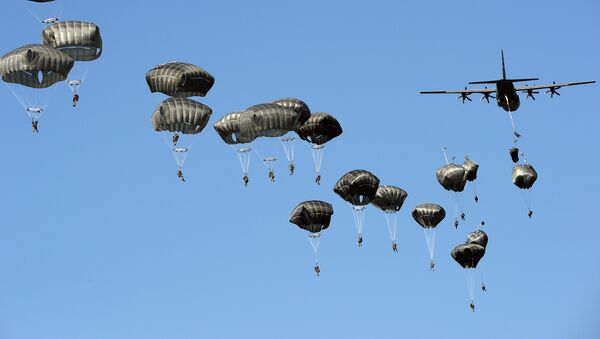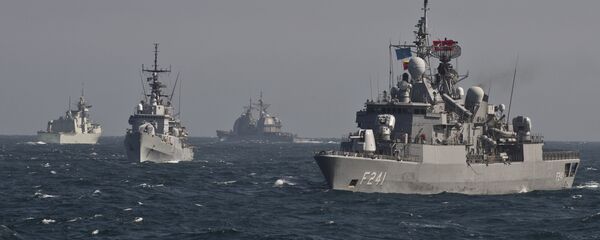"Four thousand troops is not a military threat to Russia in any way, shape or form," Sleboda says, describing NATO’s plan to deploy four new battalions to the Baltics and Poland.
"What these [deployments] are is, these are tripwires. They are intended that if, for some suicidal reason, Russia did decide to invade the Baltics, that they would immediately be forced to kill NATO troops and then NATO would be forced to respond. Effectively these are human shields being placed in the Baltics."
"But since Russia has no intention or desire for the Baltics or Poland, it is unlikely that these will be used."
The placement of military units along Russia’s borders cannot be seen by Moscow and the rest of the world as anything other than a provocation.
"What Russia finds incredibly offensive about this is, we’re looking at US and German troops deployed on its border for the first time," Sleboda says. "This is an amassing of troops, however small, for the first time since World War II, directly on Russia’s border."
Beyond simple provocation though, the deployments are in violation of the NATO-Russia Founding Act.
"It was agreed to in 1997. It was an original agreement between NATO and Russia that would then become the NATO-Russia Council, and so on. For our purposes, the primary importance of this document was NATO promised not to station combat troops, permanently, in its eastern member states," Sleboda says.
The justification for this buildup is based on debunked claims of Russia’s involvement in Eastern Ukraine.
"Never mind, of course, that NATO countries were involved in backing a coup…Ukraine that is now committing a civil war, bombing its own cities and people to try and get them to submit to the new regime in Kiev," he says.
"But that is the way NATO frames it, as Russian aggression."
Another factor in the buildup is the profits that go toward Western defense companies.
"This is extremely profitable, especially for American defense firms and America’s push to get NATO countries to use their military industrial complex," Sleboda says. "Their equipment, their producers."




